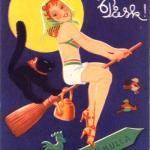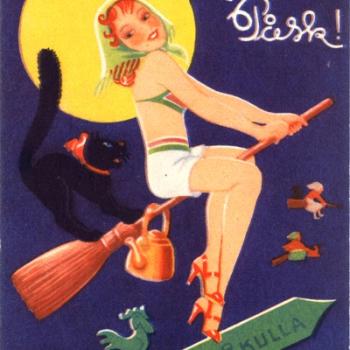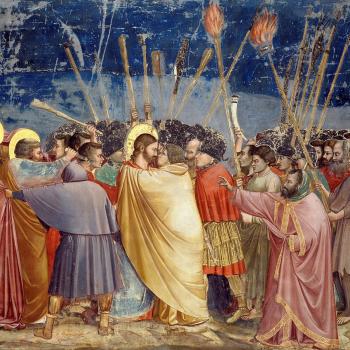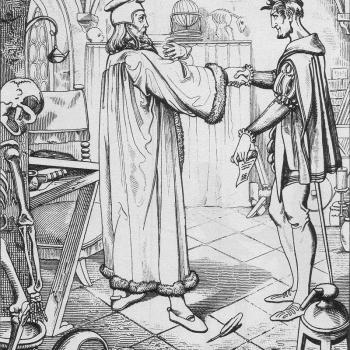As a gentleman of a middling age, being barely in the arse-end of Generation X, there was a time in witchcraft, paganism and the occult when things were assuredly not as they are today. Progress, evolution, advancement, or dilution, depending upon one’s perspective and context, there is certainly no hiding the fact that it is measurably easier in some ways today to find a local coven or pagan-friendly retailer and like-minded folk. Simultaneously, and I don’t think this is said often enough, it is also quite difficult for many to find a home in such a saturated marketplace and, therefore, it is also much harder than in the not-too-distant past — just in a different way. I’m minded of the time I was a young man selecting which university to haunt as a bag of adolescent hormones. I had visited Birmingham (the UK OG) and somebody kindly pointed out that, even in a busy metropolitan city, one can feel lonely and isolated. With a constant barrage and availability of media today, it is all too easy for older generations to forget that there is a rising tide of loneliness and feelings of isolation among young people in spite of the persistence of social media, partially contributing to some of the difficulties that future generations will have to tackle — and the rising tide of popularism and over-masculinised environments that are purposefully targeting teenage boys for radicalisation.
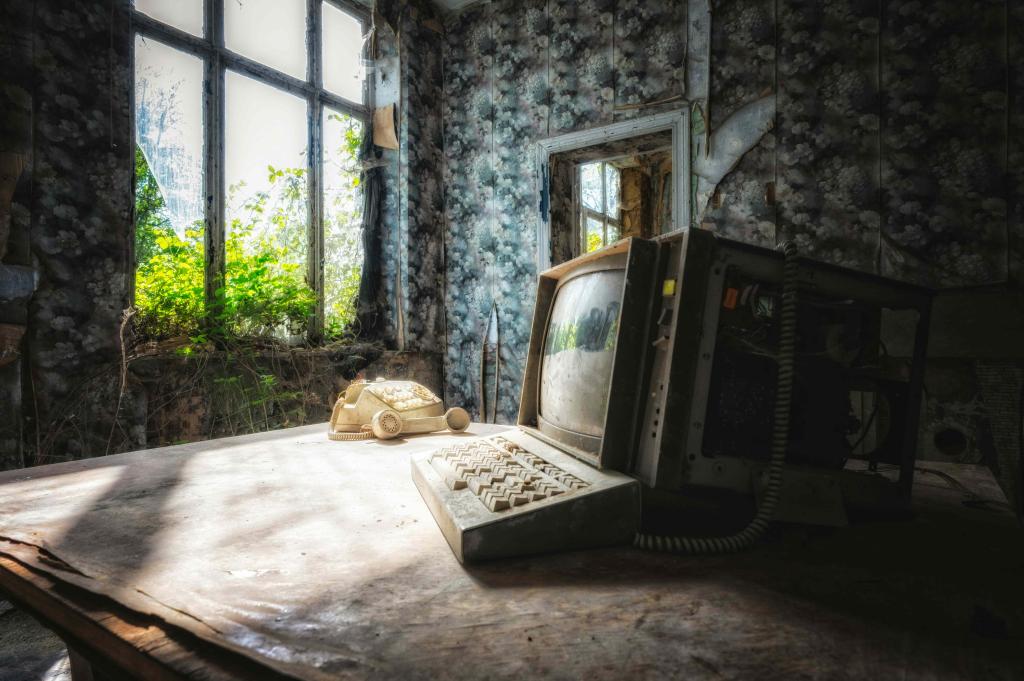
Today’s reflection, however, comes after listening to a podcast interview of one whom I assume is around a similar age to me. This is a little more candid and open that I usually write, but circumstances have brought me to a rather whimsical musing which lends itself to this. Within the podcast, the said interviewee mentioned “pre-internet times”, and I mused that such a phrase is all too common amongst my age group, especially when talking to younger pagans, witches and magicians. Whilst not intended to be patronising to those younger practitioners, such a phrase does infer something that doesn’t necessarily align with my own reminiscences, which I don’t take to be necessarily unique or individual. Rather, my own reflection imagines a burgeoning technological age that actually arrived much sooner than memory permits us to conjure in the stories we tell ourselves and each other. Of course, this is not going to be the case for us all, but my circumstances are not so especial to deduce that the internet was not growing at a pace in similar environments at the time.
It is tempting, as all generations do in middling years, to imagine our own prime periods as some kind of lost golden age that was somehow closer to nature, truer in experience and more, for want of a better term, exceptional. Of course, all technologies burst into civilisations fraught with a panic, distrust and cries of older people bemoaning how it will corrupt the young, deteriorate the mental capacity and acuity, and erode moral standards. This isn’t to say that these reservations aren’t without merit, but we should be cautious and remember too that it is widely said, and somewhat accepted, that Socrates, for example, eschewed writing and distrusted the popular availability of the written medium in ancient Greece, claiming that it was not conducive to transmitting knowledge and would degenerate the capacity of memory in the young — a routine argument that young people won’t need to remember things if they can access information so readily… sound familiar?
It seems laughable now to think of a world, and its myriad advancements since the 5th century BCE, where literature doesn’t exist. Indeed, how much value have later thinkers, inventors, politicians, playwrights, physicists, mathematicians, teachers and philosophers placed upon writing. Could we even have the modern computer without it? Within my own lifetime, of course, television was broadly touted as a negative influence upon the young, and we were told growing up that that it would “rot the brain” — which it obviously has not done, and has since been superseded by ever more advanced forms of the same technology through streaming services. Who would say that life would be better today if we had never had Shakespeare? Furthermore, my generation was amongst the last to be regularly told at school that we need to learn maths because we won’t always have a calculator in our pockets in the future — a cliche amusingly disproved by the magic oblong that is never far from our hands.
And so, the thrust of today’s pondering comes from the consideration that I, as a typical example of my generation and age-group, emerged from a ‘pre-internet’ age. Sometimes, this is clarified by the suggestion that the internet wasn’t widely available in every home, let alone in each of our pockets as it is today, and this is closer to the reality that I remember. So, dear reader, please forgive the moment’s solipsism as I recount some of my own experience with the internet in the last 30+ years…
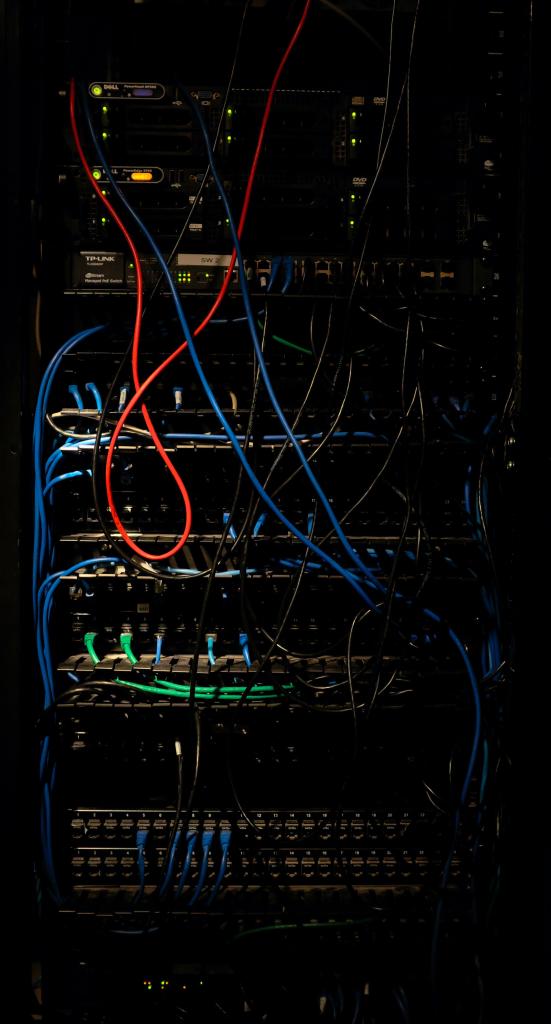
I first encountered the internet around 1993-4 in that mysterious Nissen hut* at secondary school that was laughably entitled by the Computer Technology Department the “Computer Lab” (why a ‘lab’, I will never know). In this admittedly usually barren place, cream coloured lumps of monitors were attached by faded wires to breeze blocks of discoloured plastic that contained motherboards and PCBs of various types. On these machines, we entertained ourselves during break time (recess, to our American cousins) using what was called IRC (Internet Relay Chat), which was a simple, real-time text-based communication protocol connected to the World Wide Web — today, this would be recognised as a primitive forum. It was like rudimentary Reddit, where one would find a channel that was specific — or a private room away from the main chat. Therefore, it would be disingenuous to say that I grew up, as it were, ‘before the internet’ (by which people usually infer social networks and websites) simply because I was already using what would be understood today as an internet forum. It would be far truer of me to say that this prehistory of internet forums — invented as IRC in the late nineteen-eighties — was not widely popular amongst my peers, but it was growing steadily.
Not long after, as the nineties progressed, I had my first hotmail account, used Yahoo Groups (the evolution of IRC protocols as a mailing list) and would soon work with a company that maintained a website. Indeed, it was expected at this stage of the first ‘Dot-com bubble’ that every company would have email and a website — imagine a world today where that were not the case. Sure, there was only one internet machine at that workplace and one had to use dial-up modems and withstand the incessant screeching and pinging when connecting, but this was also the means through which I found my local witchcraft shop and met my first Wiccan initiator (they were progressive enough to have a website, too!).
In terms of those Yahoo Groups and similar, I have heard people refer to it as like the ‘Wild West’, suggesting that it was a bit rough-and-ready and people navigated it like moving through a brawling bar room. My experience, in fact, is that it was nothing of the sort and, with the exception of a few bad players, it was actually a civilised and inclusive environment that produced some fascinating, fruitful and rich conversations. One particular Group forum was a cherished resource for many of us and provided the fortunate opportunity to have meaningful conversation with some authors of the time, rising oculists, and a few truly knowledgeable and experienced individuals. Indeed, I would say that people were more open to the possibility of the medium in those days than they are today, and that Facebook and social media has, actually, become more savage and wild than the burgeoning internet witch forums. Partially, I think, this might be because of the massive amount of users that the social media giants host and the sheer propensity for trolling and bad players who infiltrate and diminish the level of content. Everybody has become their own PR subject to some degree, carefully curating content with scant regard for depth and meaning and we are all who use these platforms guilty to some extent. This has been deliberately cultured by the tech giants to harvest data and keep us comatose; the new opium of the masses, to butcher Marx.
This has, unfortunately, resulted in some of those individuals who opened themselves to the possibilities of the Yahoo Group days to become more recluse and removed from the scene as it is present upon the internet today, creating a potential for division between older pagans and witches and the so-called TikTok generation. Therefore, I feel that this isn’t helped by my own cohort using terms such as ‘pre-internet days’, suggesting an exceptionalism that is not relatable, or perhaps even alienating, to the young people now coming through. This is not a criticism of those of us who have used such or similar phraseology and I retain the right of a now middle-age person to use it unthinkingly in more careless moments as my old-millennium brain adapts to its current environment. In this, the memory of my late grandmother gives me great solace as I think how she, born before the Second World War, spent her eighties and nineties listening to Harry Potter on her iPad. She adored the Lord of the Rings films, having known the books of old, and was as enthralled as a child by the CGI and creative capabilities of technology. Indeed, she entered the information age with complete ease and was fully conversant in computer and internet technologies from their introduction, marvelling at the potential.
Whilst I recognise that I might be not the average person having these experiences, I cannot believe that I am especially unique and that, if we are honest, the internet arrived much sooner in our lives than we allow. Twenty years ago, the Yahoo Groups were positively thriving and, whilst there may have been disagreement and occasional too-and-fro, they maintained an overall positive and respectful attitude and were well moderated. Partially, this was helped, perhaps, by the delay in which people read and responded to posts in an email chain, allowing for more thoughtful and considered interaction and tone. As the likes of Facebook have harnessed dopamine responses to ‘likes’, notifications and click-bait, we have seen these forms of communication turned against our community in many ways, utilising the same behavioural mechanisms that are involved in gambling addiction, for example — intermittent reward keep us checking, despite ourselves, or keep us scrolling the incessant drivel.
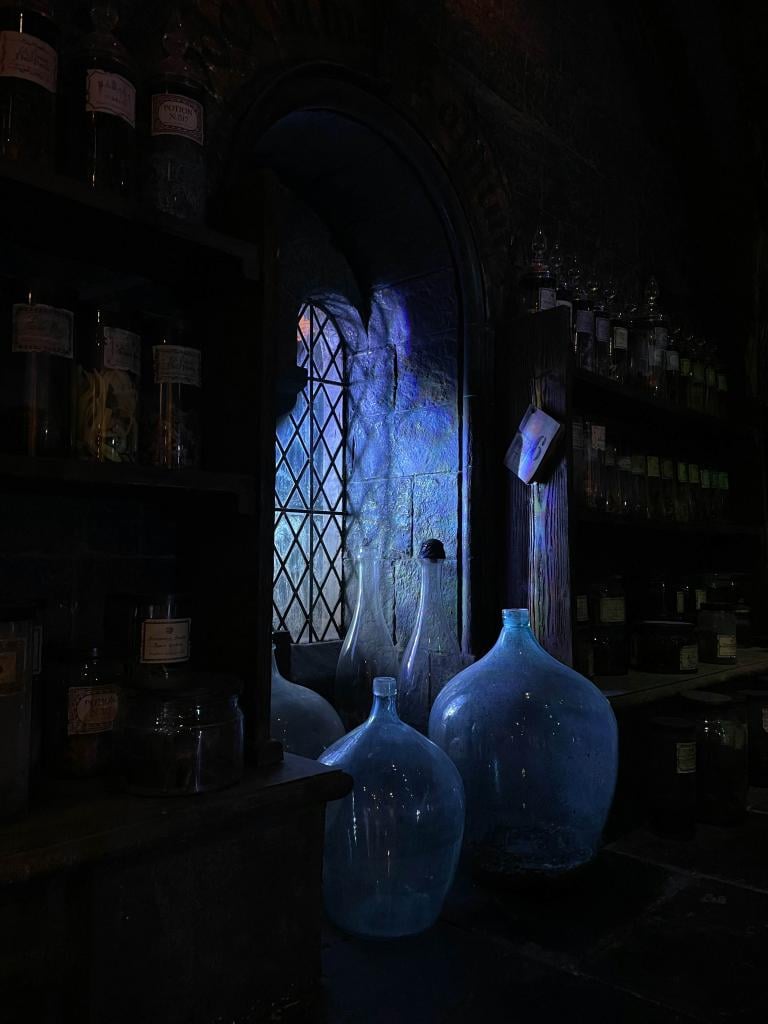
If you’ve made it thus far, I thank you for your patience and consideration as I try to articulate a few whimsical thoughts and recollections, sorting the realities of past experience and allowing myself to navigate better — and more honestly — the ever-changing and fluctuating future. It is folly to resist the unfolding of our experience, and nostalgia frequently serves to chain us to a rose-tinted past (sometimes one that was never truly as we like to remember), and we must ever be mindful of where we orient ourselves in the world. We are part of the flux and reflux, in some measure a constituent of the blossoming into a world continually remade, as pagans and witches are aware. It is good to acknowledge where we arrive from, and it is right to align our compass with our constant becoming in the forefront of our minds, but it is the present that we ever occupy and tend to the soil of our past to nurture the stems of our future.
- A Nissen hut is a prefabricated hut originally developed and used in military service during and following the Second World War. In areas of Britain that were bomb damaged, these temporary structures fulfilled the function of classrooms, ostensibly for a short period during the war. Following the armistice, education buildings were supplemented with these cheap forms of prefabricated and temporary structures and, even today, the heirs to the military Nissen hut are too common in British schools. They no longer look like tunnels of corrugated steel, but the name has stuck with a lot of my generation.
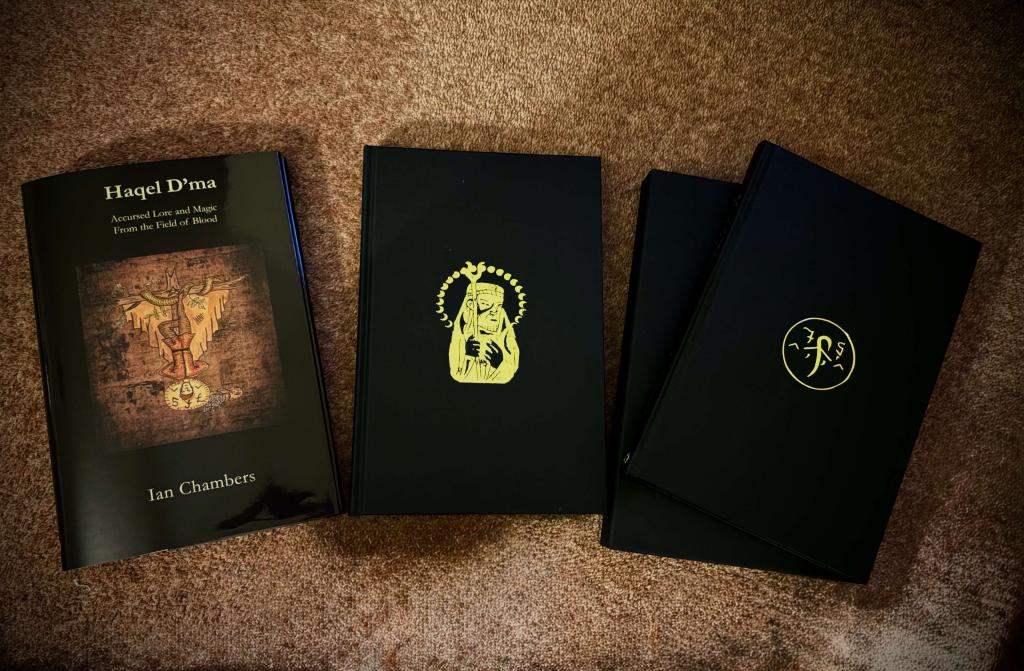
By latest book, Haqel D’ma: Accursed Lore and Magic from the Field of Blood, is available now and published by Ninth Circle Press. It is available in Standard and Special Editions and can be purchased in the USA through Miskatonic Books, and in the UK from Watkins and Courtyard Books, as well as the publisher direct.
Haqel D’ma, the Potter’s Field or Field of Blood, is the burial ground of nameless souls, the forgotten, and those outside of society. Associated in legend with the place of Judas’ demise, paid for with the coins of betrayal, and the location of a desert father, hermit, Saint and ‘wild man’, it is the ‘field of blood’. From the first centuries of Christianity, Judas was the apostle who betrayed Jesus and became crucial to the story of the Christ’s death and resurrection. This book spans the early Christian cult, the Gnostic Cainites who kept the Gospel of Judas, through to the medieval period when the Betrayer accumulated sins around him. Through folklore and custom, Judas has become synonymous with witchcraft and diabolism, charming and – most appropriately – cursing. In particular, curses laid upon books against theft!
This book explores the myth of Judas as a Cainite figure within medieval witch-lore, folklore, and custom, charming and cursing, revealing greater depth around a much-maligned character. It is a work concerned wholly with the arcana of Betrayal and its implication within the hallowed current of the Wytchan art and as an expression of the via negativa.



